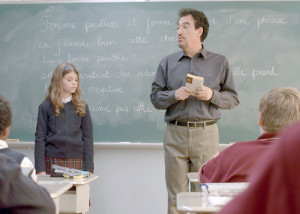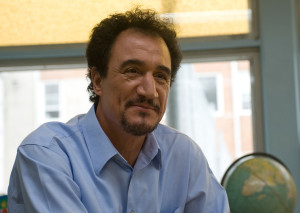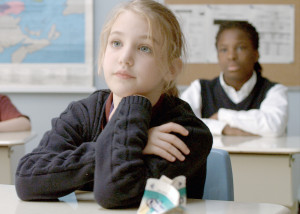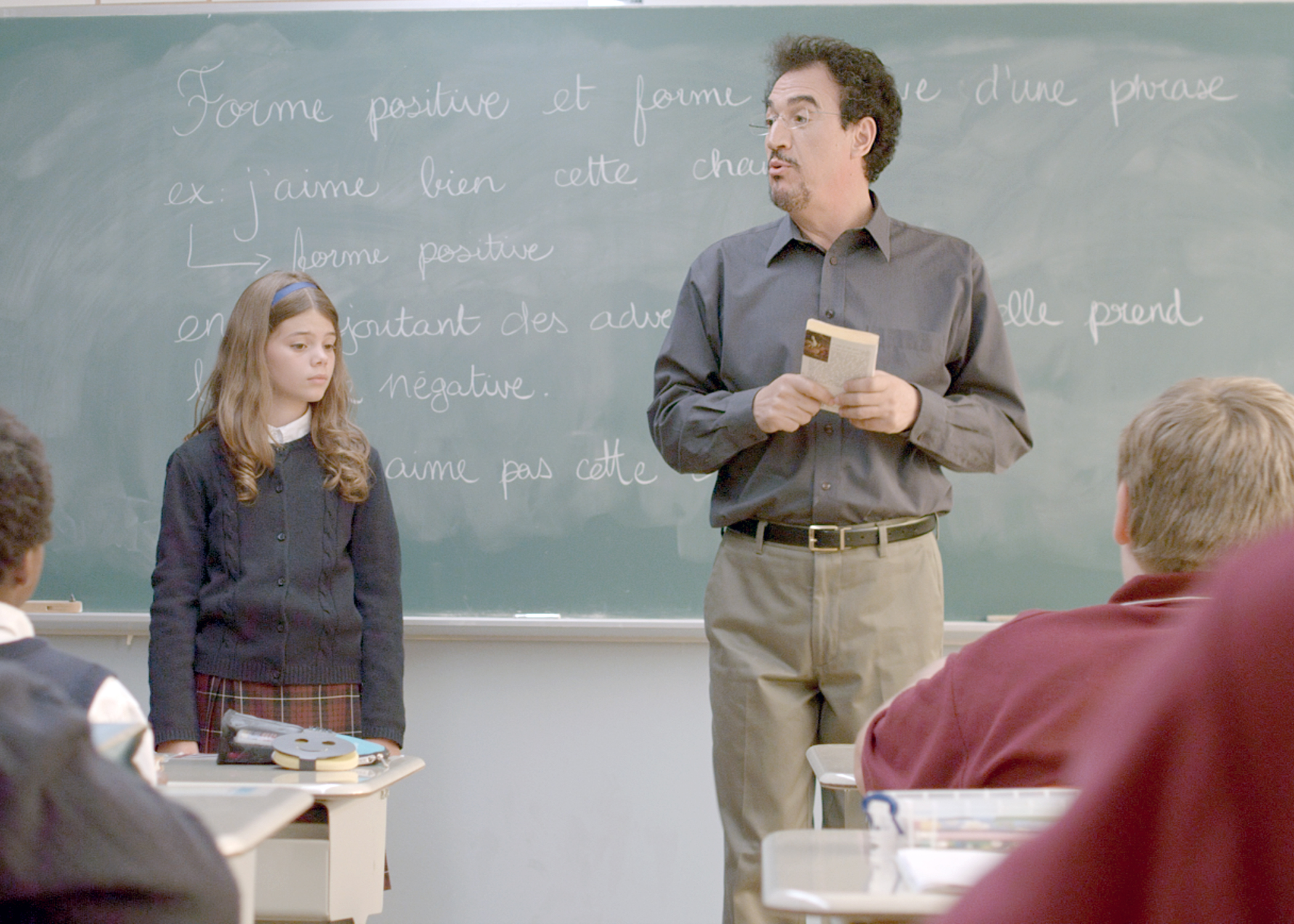
If you’ve seen the trailers for the new Canadian film “Monsieur Lazhar,” you might be tempted to characterize it as just another “Dead Poets Society” or “To Sir With Love – that is to say, a film about some perfect teacher who changes the lives of troubled children. Though “Monsieur Lazhar” is about a teacher and his middle school students, it’s a film that involves complicated characters in difficult situations and is neither as dire nor as simple as it may seem. It’s a film about the things we can’t (but desperately need to) talk about. There are no overwhelmingly significant moments, just a series of small ones that eventually build to help the characters grow, grieve and start anew. And it’s absolutely moving and affecting: tears were shed, but they were every bit earned.
The film opens with recess in a Montreal middle school at the height of winter, and the kids are outside bundled up in toques and ski jackets. School friends Alice (Sophie Nelisse) and Simon (Emilien Néron) are talking outdoors when Simon remembers it is his day to fetch the milk for the class, so he goes inside to get it. The camera gets down low, at level with Alice and Simon, so we see them fill the screen and at eye level, not as people we can physically look down on. While fetching the milk, Simon walks by their classroom, where he sees his teacher hanging from the ceiling, dead. Alice is the only other student who sees her like that; the rest of the students are quickly ushered away.
The school deals with this in the way the 21st century dictates: by making discussion about the event taboo in general discourse, but forcing all the students to see the school psychiatrist to deal with their grief. They need a new teacher, too, and we meet Monsieur Lazhar (Mohamed Fellag) when he shows up shortly thereafter. He isn’t responding to a job posting, but he did read about the teacher’s suicide in the newspaper and assumed that the post must be open. He is polite, well-spoken, kind and charismatic in an Old World kind of way; his good manners seem like a relic from another time.
We soon learn that Monsieur Lazhar is an Algerian political refugee in the middle of court proceedings to immigrate to Montreal where he now resides. Montreal feels foreign in many ways, from the winter to the climate to the Quebecois-isms, which are foreign to French speakers from the rest of the world. The teachers and students want to hear his backstory because they romanticize him as exotic and his immigration experience as an exciting adventure as opposed to what it is for him: a hard, foreign journey taken because he had no other choice. He only answers in broad strokes: it’s too painful to talk about.

There certainly are romantic aspects to Lazhar. He starts his class with a dictation from Balzac and is surprised when his students find this French ancient. He muses about how he worries that the children will grow up to be adults but still speak like children, and he has a knack for metaphors. But it takes him some time to understand the culture in the classroom and the effect that the teacher’s death had on his students. He mistakenly assumes a boy with his head on his desk is sleeping, when in fact the boy suffers from severe migraines, which the rest of the class knows.
The film focuses on Lazhar, Alice and Simon, and how Lazhar unobtrusively helps them cope and grow while he comes to terms with his own past. Alice quickly emerges as a precocious student: smart, fiery and mature beyond her years. Simon carries around a deep sense of guilt for the events because of how they transpired – his teacher knew that it was his day to fetch the milk and that he would see her, he thinks – and he was responsible for slander against the teacher.
Sophie Nélisse, who plays Alice, is a very pretty, very cute girl, but the movie doesn’t play this up. Instead, she looks the way a middle schooler looks: with imperfect hair sometimes, unglamorous in the school uniform or in real winter gear, but still beautiful. This is a microcosm of the film as a whole, which wonderfully treats children as complex human beings and not just cute objects or convenient plot devices. It’s not just their hair that’s messy; their lives are messy, too.

“Monsieur Lazhar” is a film about language: its limitations and its possibilities. Lazhar can’t or won’t talk openly about his past; the children are forced to talk about their grief but only at designated times. Lazhar teaches language and personal expression, and he values it when students speak their mind, but he also knows and has learned the hard way that unwelcome words can be dangerous. So much of what happens in the movie relies on what is and isn’t said, and the tacit deals that we make, for better or worse. “Monsieur Lazhar” is quietly observed, withholds judgment, asks many questions and offers no easy answers.
